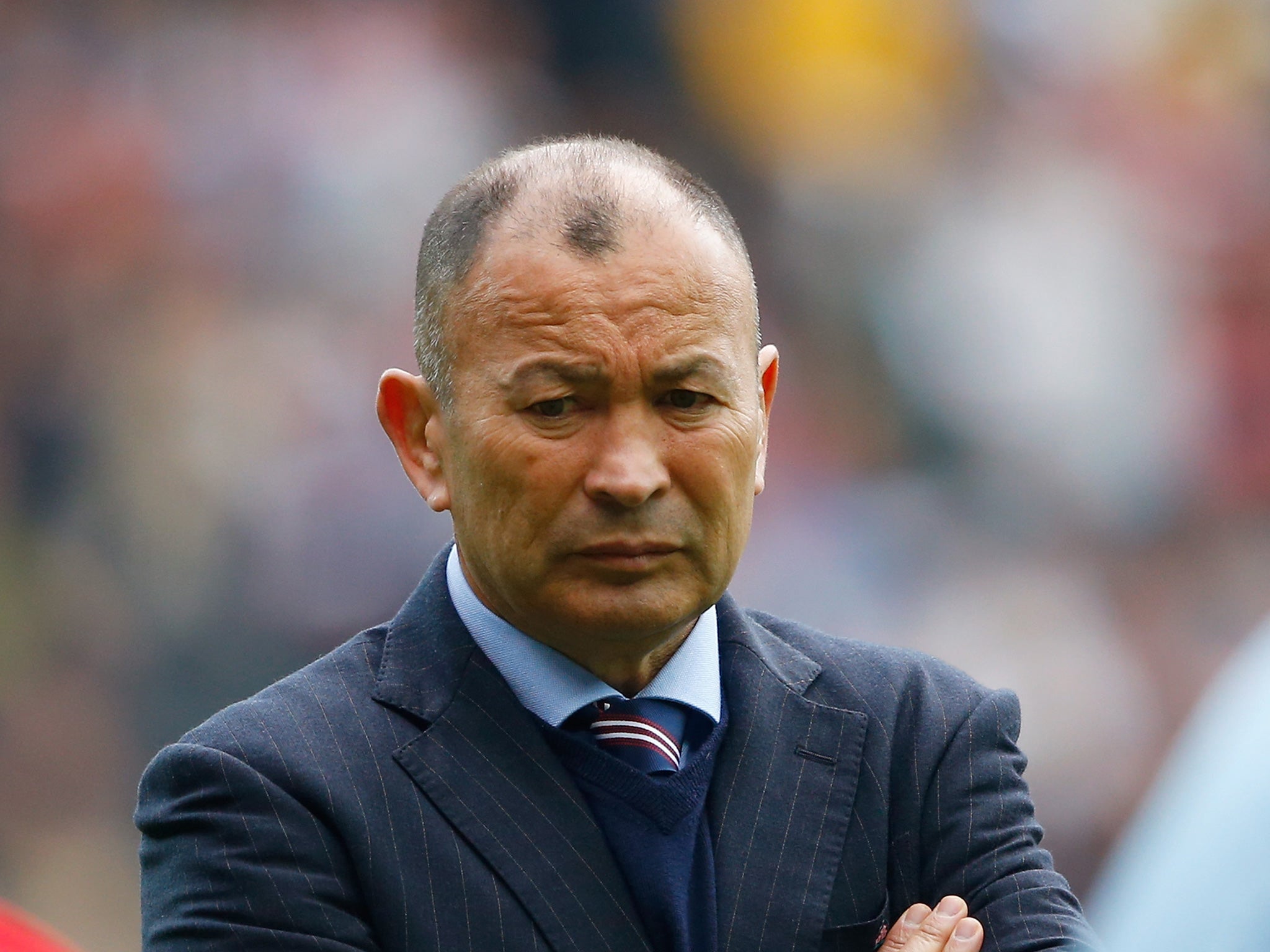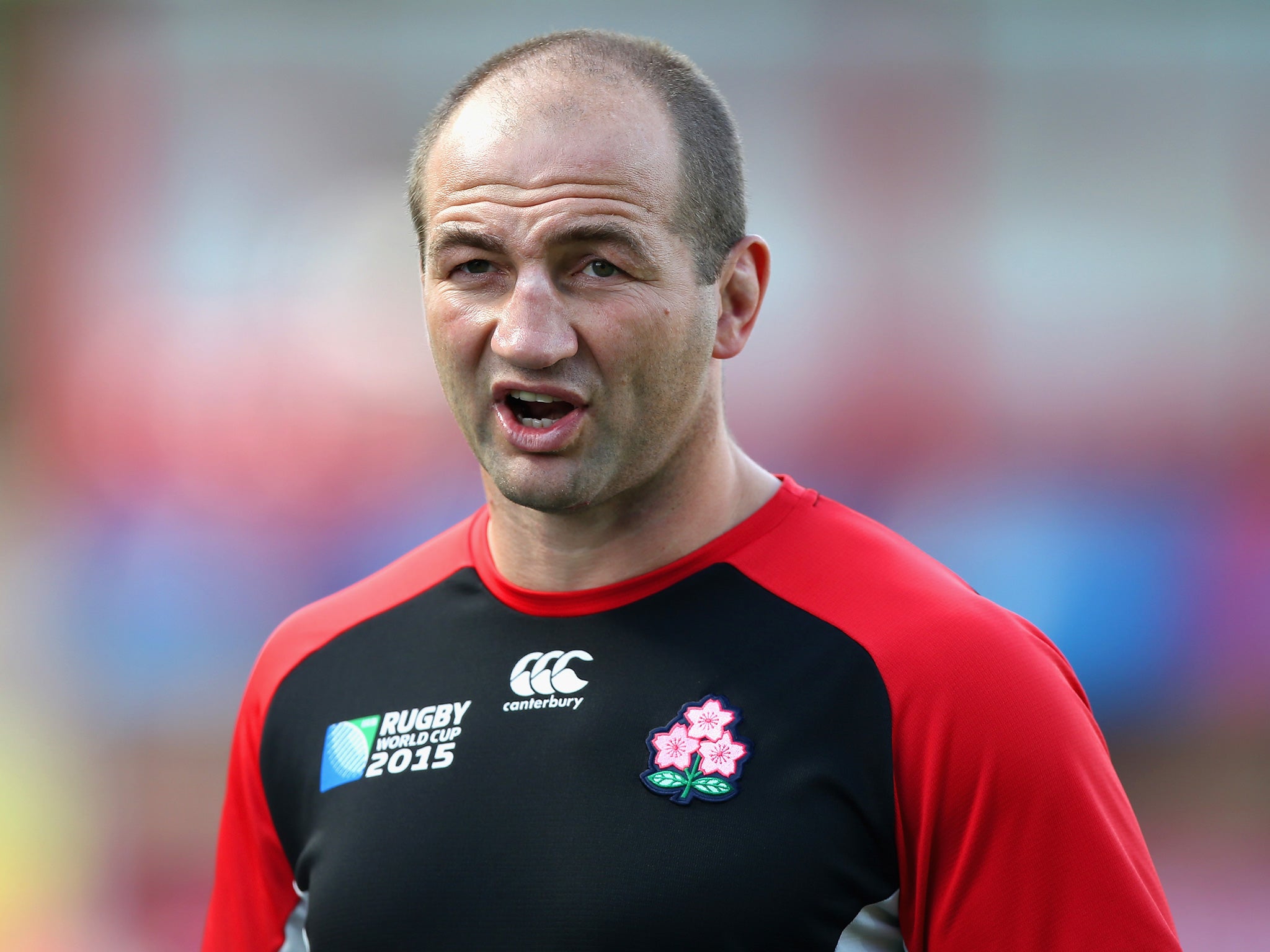Eddie Jones named England coach: Red Rose ready to embark on new era after winning fight for ex-Wallaby coach
Former England captain, Steve Borthwick, could join up with new coaching team under the 55-year-old Australian

Your support helps us to tell the story
From reproductive rights to climate change to Big Tech, The Independent is on the ground when the story is developing. Whether it's investigating the financials of Elon Musk's pro-Trump PAC or producing our latest documentary, 'The A Word', which shines a light on the American women fighting for reproductive rights, we know how important it is to parse out the facts from the messaging.
At such a critical moment in US history, we need reporters on the ground. Your donation allows us to keep sending journalists to speak to both sides of the story.
The Independent is trusted by Americans across the entire political spectrum. And unlike many other quality news outlets, we choose not to lock Americans out of our reporting and analysis with paywalls. We believe quality journalism should be available to everyone, paid for by those who can afford it.
Your support makes all the difference.Eddie Jones, one of rugby union’s original “super-coaches” and still regarded in many quarters as the best of them, spent Thursday at Twickenham finalising a four-year deal as England’s new boss, with the Rugby Football Union confirming his appointment early Friday morning.
The 55-year-old Australian, the first foreigner to take on one of the most demanding jobs in the sport, was confirmed in his position by the governing body within 24 hours of arriving in London and given carte blanche to piece together a back-room team of his choosing.
Jones flew in from South Africa, barely a week after embarking on a three-year term with the Cape Town-based Stormers. Initial reports that the Rugby Football Union would have to find £700,000 to buy their man out of his Super Rugby contract appear to be wide of the mark: some insiders put the figure at £100,000 – an extraordinarily good piece of business if true, given the Twickenham chief executive Ian Ritchie’s publicly stated willingness to pay top dollar in pursuit of his quarry.
Only last week, Jones indicated that he was more than happy with – and committed to – life at the foot of Table Mountain, but he has always had a preference for the sunlit uplands of the international game. He coached the Wallabies to the World Cup final in 2003, was on the Springbok staff alongside his long-time friend and collaborator Jake White when the Webb Ellis Cup was secured in 2007 and turned the union code on its head at the recent global tournament in England by coaxing a series of startling performances from Japan, who won three of their four pool matches – two more than they had managed in 24 previous fixtures stretching back almost 30 years.

Widespread suggestions that White would also be given a Twickenham role, in the newly established post of performance director, were not borne out by events. The South African, one of those on Ritchie’s list of “possibles” for the head coach position, said he was sticking with the French club Montpellier, adding: “I have a contract here and I’m not going to change. It’s important for the club, the players and the atmosphere to remove the doubt.”
After England’s embarrassingly early departure from their own World Cup – they were the first host nation in the competition’s history to bow out before the knockout phase – the RFU’s top brass decided there was no option but to hire an experienced hand from overseas.
The last figure of real coaching substance to run the national side was Brian Ashton, who took the team to the 2007 World Cup final against South Africa before being railroaded out of the job by a group of muddle-headed committee types – a decision that looks even more stupid now than it did at the time.
The two subsequent England coaches, Martin Johnson and Stuart Lancaster, both failed miserably when the pressure was at its greatest.
Lancaster’s principal lieutenants – the backs coach Andy Farrell, the forwards strategist Graham Rowntree and the attacking skills specialist Mike Catt – are still in post, but the odds on them surviving Jones’ arrival are far from encouraging.
Many expect the new man to send for the former England captain Steve Borthwick, with whom he worked so productively in Japan, while the current Wales defence coach, Shaun Edwards, is another name in the frame.
Borthwick finds himself in an interesting position. Highly regarded as a thinker on the sport and considered by Jones to be an exceptional analyst, he is still in the early stages of his coaching career, having retired as a player only 18 months ago. Currently working with Bristol in the second tier of the English club game, he may decide to see out the rest of the season in the West Country before taking on any role at Twickenham.
Apart from pulling together his support staff, Jones must cast an early eye over the available talent on the field. A new England “elite player squad” is due to be named in early January, with the first game against Scotland at Murrayfield on 6 February.
Join our commenting forum
Join thought-provoking conversations, follow other Independent readers and see their replies
Comments